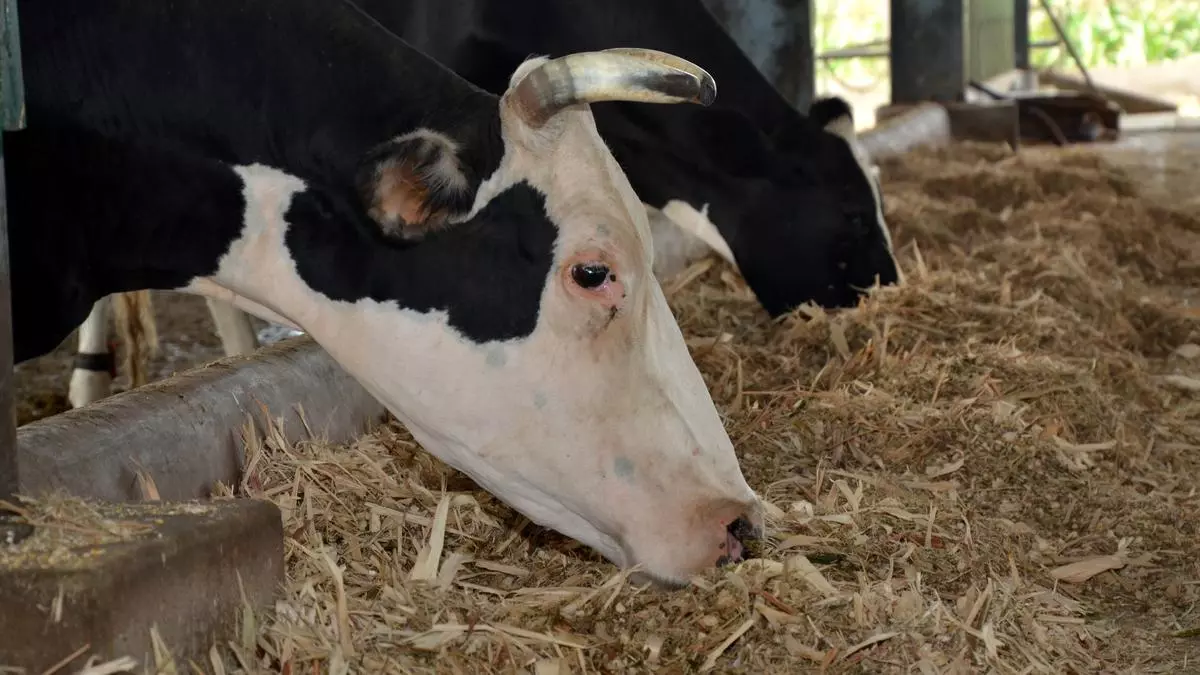Effective feed and fodder management key in sustainable dairying: Report
Effective feed and fodder management plays an important role in sustainable dairying in a country like India where smallholder farmers constitute a major portion of the dairy farming, according to a report by Confederation of Indian Industry – Jubilant Bhartia Food and Agriculture Centre of Excellence, and Environmental Defence Fund.
The report titled “India’s Dairy Future: Aligning Livelihoods, Growth, and Climate Solutions” said that with over 80 million dairy farmers, even small-scale interventions can create a substantial positive environmental impact.
Affordable and straightforward solutions such as improved fodder and manure management can boost productivity without imposing financial strain.
Innovative solutions
Mentioning that effective feed and fodder management is fundamental to sustainable dairying, the report said balanced diets, supported by initiatives like the Ration Balancing Programme by National Dairy Development Board, enhance livestock productivity and reduce emissions.
Practices such as silage feeding, especially in water-scarce regions, and the use of crops such as maize and sorghum are beneficial for smallholders. Innovative solutions such as hydroponics and climate-resilient forage crops, including bajra, napier and millets, address fodder shortages in drought-prone areas.
However, wider adoption of these practices requires accessible extension services, robust feed quality standards and improved supply chain infrastructure, it said.
Manure management practices, including timely drying of manure, composting/vermicomposting, and biogas/compressed biogas production, significantly reduce methane emissions. Composting converts waste into organic fertilizers reducing reliance on inorganic alternatives. Biogas adoption provides access to renewable energy source, which can be scaled by integrating it into rural electrification initiatives and promoting it as clean cooking fuel, it said.
Another critical area
On sustainability in the supply chain, the report said initiatives such as using water-saving technologies, renewable energy and circular packaging can reduce supply chain emissions. Solar-powered cold storage and agri-voltaics improve energy efficiency, while stronger policies and consumer awareness can promote sustainable packaging.
Terming breeding management as another critical area, the report said indigenous production of sex-sorted semen and advanced techniques such as Embryo Transfer Technology hold potential. Conservation of indigenous breeds through genomic tools and participatory programmes can enhance resilience and genetic diversity.
Refinement in breed- and feed-specific emission factors are essential for accurately measuring greenhouse gas emissions from the sector, which can be addressed by promoting research and developing models that can accurately gather data, it said.
Precision farming
Precision dairy farming technologies, including automated milking systems and climate-resilient sheds, offer significant potential for efficiency gains but are currently limited to larger farms due to high costs. Developing cost-effective solutions could facilitate scalability among smallholder farmers.
Supporting smallholders with resources such as infrastructure, training, and financial assistance not only aids the adoption of climate-resilient practices but also improves milk yields and farmer incomes.
Mentioning that India’s dairy sector is already advancing toward sustainability, the report said continued efforts to support smallholder farmers in adopting climate-resilient practices are essential. These initiatives not only improve milk yields, reduce costs, and enhance farmer livelihoods but also strengthen brand value, attract environmentally conscious consumers, and align with India’s climate goals.
Achieving sustainable dairying requires coordinated efforts among industry players, government agencies, cooperatives, technology providers, and research institutions. Collaborative action will address on-ground challenges, accelerate the adoption of climate-resilient practices and secure a sustainable future for India’s dairy sector, it added.
